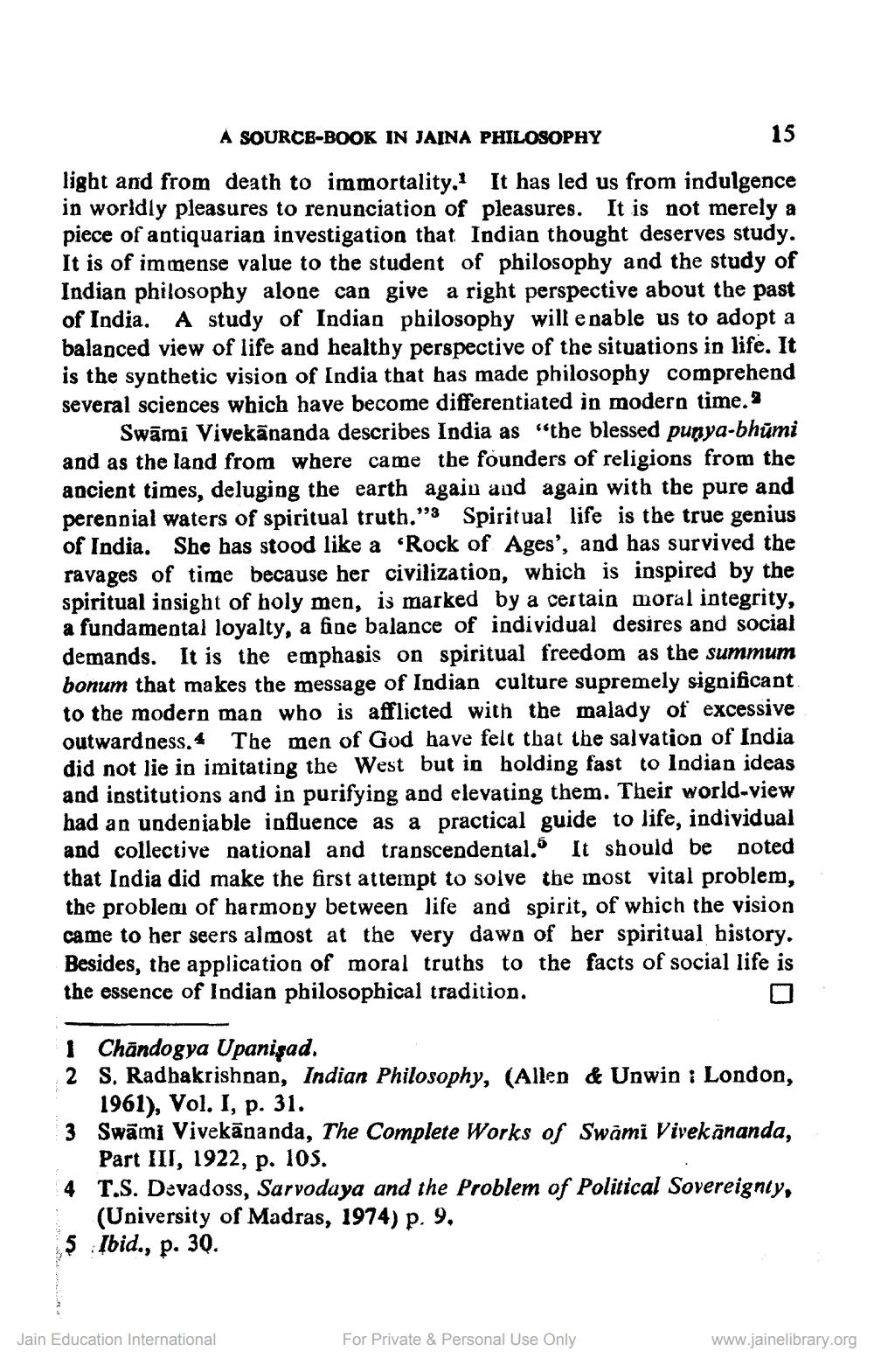________________
A SOURCE-BOOK IN JAINA PHILOSOPHY
light and from death to immortality. It has led us from indulgence in worldly pleasures to renunciation of pleasures. It is not merely a piece of antiquarian investigation that Indian thought deserves study. It is of immense value to the student of philosophy and the study of Indian philosophy alone can give a right perspective about the past of India. A study of Indian philosophy will enable us to adopt a balanced view of life and healthy perspective of the situations in life. It is the synthetic vision of India that has made philosophy comprehend several sciences which have become differentiated in modern time."
15
Swami Vivekananda describes India as "the blessed punya-bhūmi and as the land from where came the founders of religions from the ancient times, deluging the earth again and again with the pure and perennial waters of spiritual truth."3 Spiritual life is the true genius of India. She has stood like a 'Rock of Ages', and has survived the ravages of time because her civilization, which is inspired by the spiritual insight of holy men, is marked by a certain moral integrity, a fundamental loyalty, a fine balance of individual desires and social demands. It is the emphasis on spiritual freedom as the summum bonum that makes the message of Indian culture supremely significant. to the modern man who is afflicted with the malady of excessive outwardness.4 The men of God have felt that the salvation of India did not lie in imitating the West but in holding fast to Indian ideas and institutions and in purifying and elevating them. Their world-view had an undeniable influence as a practical guide to life, individual and collective national and transcendental." It should be noted that India did make the first attempt to solve the most vital problem, the problem of harmony between life and spirit, of which the vision came to her seers almost at the very dawn of her spiritual history. Besides, the application of moral truths to the facts of social life is the essence of Indian philosophical tradition.
1 Chandogya Upanisad.
2 S. Radhakrishnan, Indian Philosophy, (Allen & Unwin: London, 1961), Vol. I, p. 31.
3 Swami Vivekananda, The Complete Works of Swami Vivekānanda, Part III, 1922, p. 105.
4 T.S. Devadoss, Sarvodaya and the Problem of Political Sovereignty, (University of Madras, 1974) p. 9,
5 Ibid., p. 30.
Jain Education International
For Private & Personal Use Only
www.jainelibrary.org




